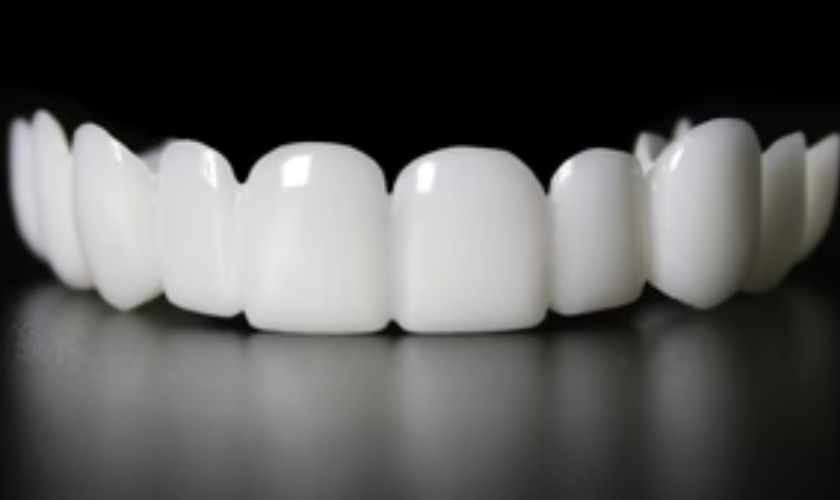(703) 372-5665
What do you do if you are unhappy with veneers?

What do you do if you are unhappy with veneers?
Dental veneers can significantly improve the appearance of your smile, offering a solution for chipped, discolored, or misshapen teeth. However, while the process is typically straightforward and safe, some patients might experience major pain after getting veneers. If you find yourself in this situation, it’s essential to know how to manage the discomfort and when to seek further medical attention. Here’s what you should do if you encounter major pain after dental veneers.
1. Understand the Expected Discomfort
First, it’s important to distinguish between normal post-procedural sensitivity and severe pain. It’s normal to experience some sensitivity to heat, cold, and pressure after veneer placement, especially if your teeth have been reshaped significantly during the procedure. This minor discomfort should subside within a few days. However, severe pain or pain that persists beyond a few days is not typical and warrants further investigation.
2. Take Prescribed or Over-the-Counter Pain Relief
Immediately following your procedure, your dentist might prescribe pain relievers or recommend over-the-counter options like ibuprofen or acetaminophen. These can help manage pain and reduce inflammation. Be sure to follow the dosage instructions provided by your dentist or the medication packaging to avoid any potential side effects.
3. Practice Good Oral Hygiene
Maintaining good oral hygiene is crucial after getting veneers. Poor hygiene can lead to gum inflammation and infection, which might exacerbate the pain. Brush gently with a soft-bristled toothbrush and non-abrasive toothpaste, and floss carefully to remove debris from around the veneers without disturbing the edges of your gums.
4. Use a Soft Diet
In the days following your veneer placement, sticking to a soft diet can help minimize pain. Avoid hard, crunchy, or sticky foods that require significant chewing or could pull on the veneers. Foods like soups, yogurt, smoothies, and mashed potatoes will prevent additional stress on your teeth and help you maintain adequate nutrition.
5. Avoid Extreme Temperatures
As your teeth adjust to the veneers, they might be particularly sensitive to hot and cold temperatures. Consuming beverages and foods that are too hot or cold can trigger sharp pain. Stick to drinks and foods at moderate temperatures to minimize discomfort.
6. Monitor for Signs of Infection or Misalignment
Severe pain might be a sign of infection or that the veneers have been improperly placed. Symptoms like redness, swelling, excessive or prolonged pain, or gums that bleed easily are alarming and should prompt a visit to your dentist. Additionally, if the veneers feel loose or you notice that your bite is off, your dentist should adjust them.
7. Return to Your Dentist
If you experience ongoing severe pain, it’s important to return to your dentist. They can assess whether the pain is due to an infection, poor placement, or another issue like tooth decay beneath the veneer. In some cases, adjustments can be made to the veneers or underlying teeth to alleviate the discomfort. In more severe instances, removal of the veneer might be necessary.
What to Expect During Your Follow-Up Visit
During your follow-up visit, your dentist will likely conduct a thorough examination of your teeth, gums, and veneers. They might take X-rays to look beneath the veneers to check for signs of decay or other issues. Depending on the findings, they could adjust the veneers, treat any underlying issues, or in rare cases, suggest alternative treatments.
Preventing Pain in the Future
To prevent severe pain after getting veneers in the future, consider the following:
- Choose an Experienced Dentist: An experienced cosmetic dentist is crucial for ensuring that your veneers are placed correctly and with minimal impact on your natural teeth.
- Discuss All Options: Before getting veneers, discuss all available options with your dentist. In some cases, alternatives like bonding or crowns might be more suitable and less painful.
- Understand the Procedure: Knowing what to expect during and after the veneer application can help you prepare mentally and physically, potentially reducing anxiety-related discomfort.
Dental veneers can transform your smile, but it’s important to be aware of and prepared for any potential complications. If you experience severe pain after getting veneers, don’t hesitate to contact your dentist. Proper care and immediate action can alleviate your pain quickly and ensure the health of your new smile.



